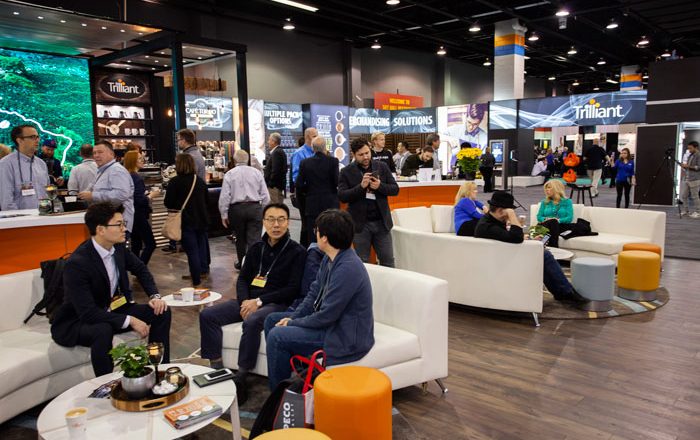A trade show is an international exhibition held so that firms in a particular industry can showcase their newest products and services, interact with clients, business partners, academics and other industry stakeholders, study global market trends, and evaluate current market opportunities and possibilities. It is considered as one of the most effective ways to strengthen and build ties between two or more companies and create awareness of new technologies, products, or services. A successful trade show exhibits an original, innovative, and interactive design that attracts a sizeable number of potential customers. A highly productive trade show exhibits a high degree of product variety, convenience, speed, quality, and value.
In order to be successful, a trade show must reach out to as many potential customers as possible. Exhibitors should create an eye-catching booth featuring products that have high profit margins, but also exhibit products that are not yet market-appropriate. Some trade show convention centers allow the exhibitors to set up on the floor, where they can interact with both the guests and the staff.
Before and throughout the exhibition, it is a good idea for the exhibitors to conduct a few pre-show activities, such as product demonstrations, roundtables, demonstrations, and product demonstrations. Many convention centers provide additional services to enhance the success of a trade show event, including guest speakers, technical demonstrations, networking opportunities, information tables, media access, artisans, specialty vendors, and educational seminars. All these combine to enhance the productivity of the exhibiting booth.
The duration of the events and the scope of the product range are dependent on the nature of the industry and the target audience. Trade shows are usually held in one day, with weekend or extended-stay exhibitions possible. Most trade shows are separated by a few days. Some focus on specific industries such as the toy industry, auto industry, fashion industry, or technology industry, while others are general exhibits spanning all of the above categories. The focus of the events may be on single product lines, such as a clothing trade show or an electronic goods trade show.
Trade show displays are normally constructed in such a way that maximizes the visibility of the company logo. The visual effects of a trade show display can be spectacular. However, trade show displays do not have to be huge, expensive affairs. Good planning and creativity can reduce costs and ensure that the exhibition runs smoothly. Some companies hire experts in trade show promotion to make sure that the company’s message is conveyed to the maximum number of attendees.
Exhibition planners, on the other hand, are the persons who plan the entire event, from the selection of venues, the selection of trade shows, and even the distribution of promotional material. They work closely with booth managers, event organizers, venue owners, and other personnel to ensure that everything goes according to plan. Sometimes, it is necessary for exhibition planners to outsource certain functions, especially those involving security or logistics. In order to cut costs, many organizers choose to hire additional help from outside companies.

